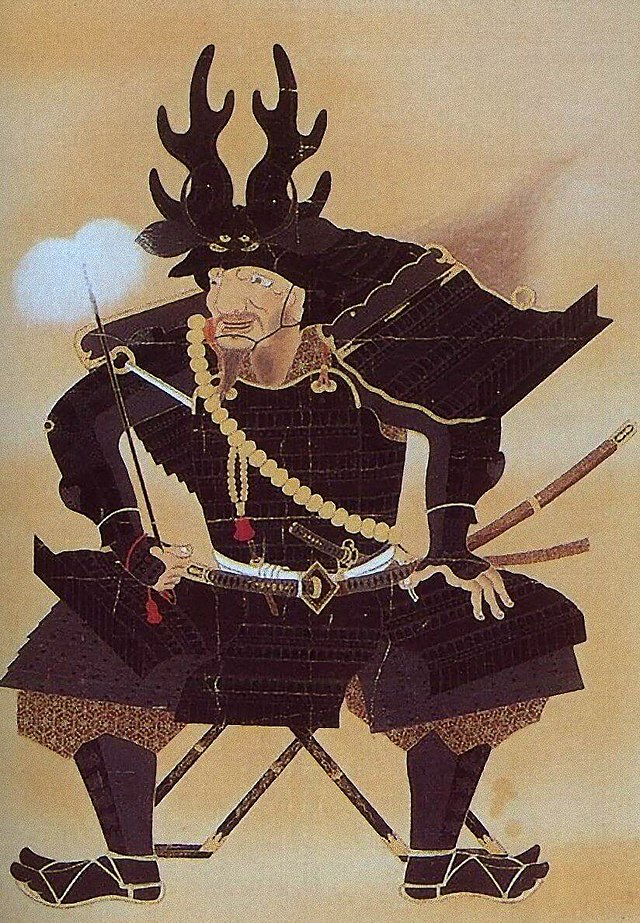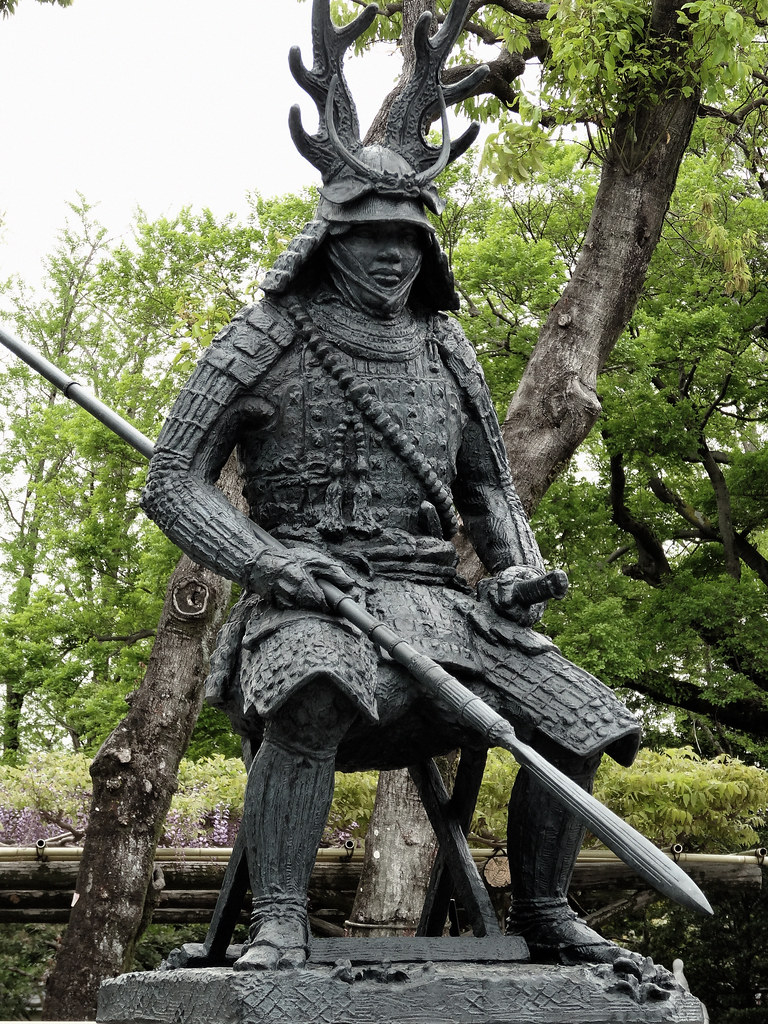Honda Tadakatsu
Honda Tadakatsu (March 17, 1548 – December 3, 1610) was a Japanese samurai, general, and daimyo during the late Sengoku and early Edo periods who served Tokugawa Ieyasu. Honda Tadakatsu, along with Ii Naomasa, Sakakibara Yasumasa, and Sakai Tadatsugu, was one of the Tokugawa Four Heavenly Kings.
Honda's fame caught the attention of Japan's most powerful figures at the time. Oda Nobunaga, who was infamous for not praising his followers, referred to him as a "samurai among samurai." Toyotomi Hideyoshi further mentioned that the best samurai were "Honda Tadakatsu in the east and Tachibana Muneshige in the west." Honda was commended by Takeda Shingen, who described him as "a luxury of Tokugawa Ieyasu." He was widely considered to be a renowned samurai and a devoted follower of Tokugawa Ieyasu.
Tadakatsu is known as "The Warrior Who Surpassed Death" because, although having fought in over 57 fights towards the end of his life, he never received a severe wound and was never vanquished by another samurai. Tadakatsu is frequently portrayed as the polar antithesis of Ieyasu's other great general, Ii Naomasa, in theater and other contemporary works. While both were powerful Tokugawa fighters, Tadakatsu's ability to avoid harm is frequently contrasted with the typical picture of Naomasa suffering multiple combat wounds yet battling through them.
Japanese name: 本多 忠勝
Born: March 17, 1548, in Mikawa Province, Japan
Died: December 3, 1610, in Edo, Japan
Notable battles: Battle of Anegawa, Battle of Mikatagahara, Battle of Nagashino












